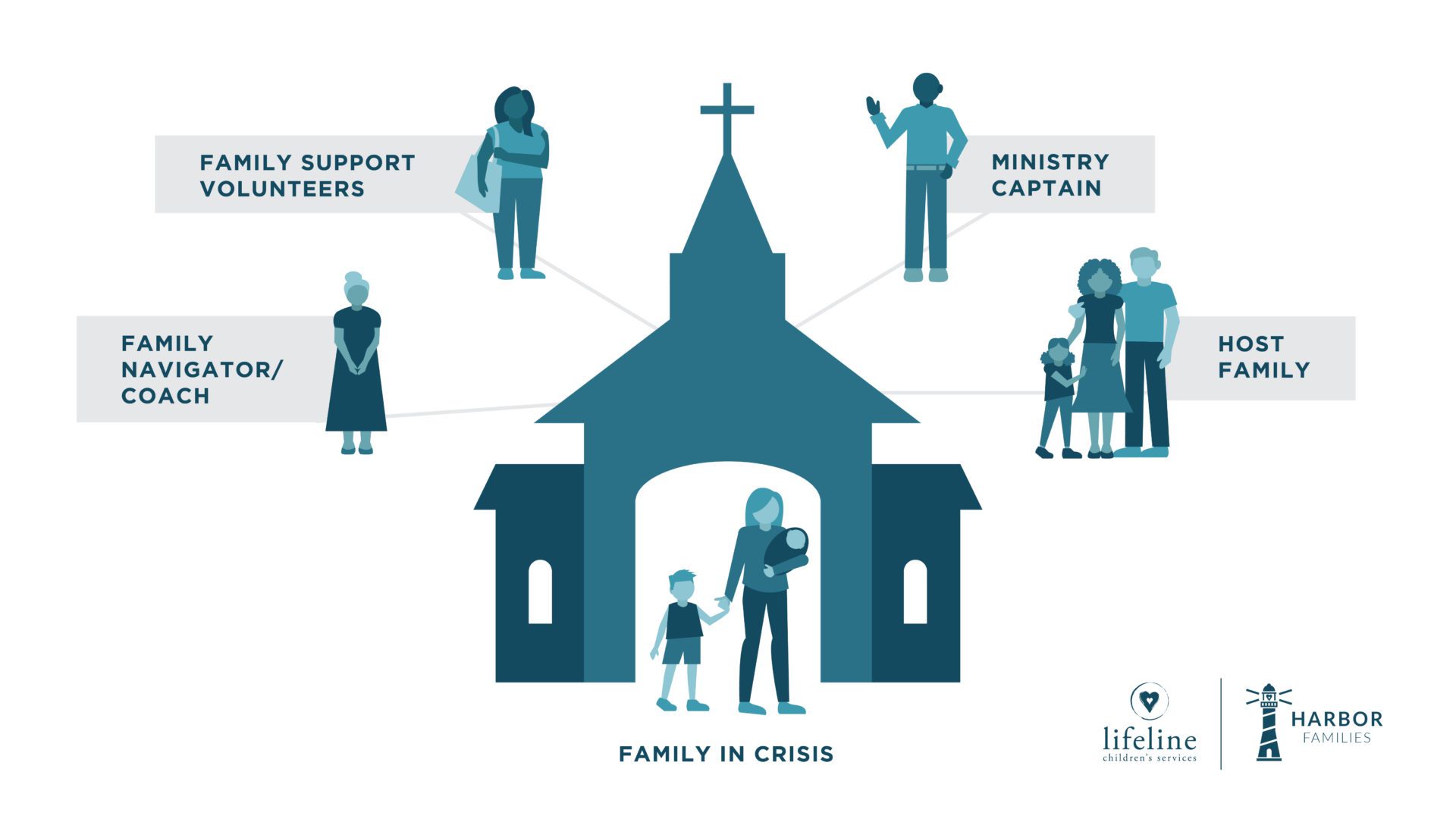
Harbor Families
Local churches providing temporary care for vulnerable children and tangible support to families
Lifeline’s Harbor Families exists to extend the hope, restoration, and love of Jesus Christ to children and families experiencing a crisis.
All families need support to survive and thrive, but not all families have access to positive informal supports in their communities. Many are struggling and suffering in isolation.
Families in our community who are experiencing social isolation, meaning they have little to no support system, often face crisis with nowhere to turn. Even seemingly small difficulties can be debilitating for these vulnerable families and can lead to a higher risk of children being abused and neglected.
Through Harbor Families, local churches are able to engage with these vulnerable families by providing temporary care and support.
BRINGING GOSPEL HOPE TO FAMILIES IN NEED
.
THE NEED
Imagine needing a surgery or long hospital stay, having a desire to get in patient addiction rehabilitation, or being faced with homelessness and having nowhere for your children to go during your temporary crisis. You are faced with either not getting the help you need or leaving your child in an unsafe situation. This places the child at risk of entering foster care.
We know that if a child enters foster care, the reunification process is difficult and the average time a child stays in care is over a year.
THE VISION
We also know God designed the family unit as a place of healing and safety for children. And a broken family needs the support, healing, mercy, and guidance from God’s people.
Harbor Families exists to extend the hope, restoration, and love of Jesus Christ to children and families experiencing a crisis in order to keep families together.
THE HOW
Through the Harbor Families ministry, local churches recruit Christ-centered host families who provide temporary, short-term care to children and church volunteers support parents working through a crisis.
The physical, emotional and spiritual supports provided through relationships with people in the body of Christ, and the tangible church and community resources are intended to prevent the need for formal services, such as involvement in the child welfare/foster care system.
Lifeline equips the church to implement the model in your community, provides assessment and training of host families and volunteers, and provides connection between vulnerable families and the church.
THE NEED
Imagine needing a surgery or long hospital stay, having a desire to get in patient addiction rehabilitation, or being faced with homelessness and having nowhere for your children to go during your temporary crisis. You are faced with either not getting the help you need or leaving your child in an unsafe situation. This places the child at risk of entering foster care.
We know that if a child enters foster care, the reunification process is difficult and the average time a child stays in care is over a year.
THE VISION
We also know God designed the family unit as a place of healing and safety for children. And a broken family needs the support, healing, mercy, and guidance from God’s people.
Harbor Families exists to extend the hope, restoration, and love of Jesus Christ to children and families experiencing a crisis in order to keep families together.
THE HOW
Through the Harbor Families ministry, local churches recruit Christ-centered host families who provide temporary, short-term care to children and church volunteers support parents working through a crisis.
The physical, emotional and spiritual supports provided through relationships with people in the body of Christ, and the tangible church and community resources are intended to prevent the need for formal services, such as involvement in the child welfare/foster care system.
Lifeline equips the church to implement the model in your community, provides assessment and training of host families and volunteers, and provides connection between vulnerable families and the church.

